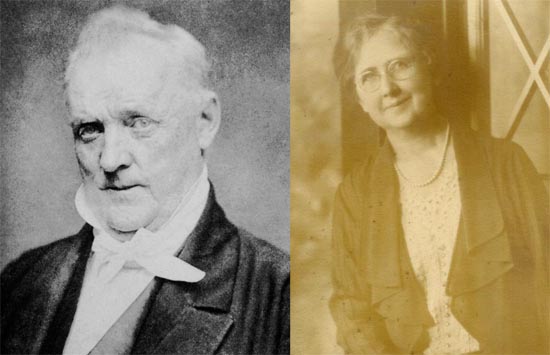Like those e-mails we get today from Nigerian princes, it was surely too good to be true. . . but then again, maybe not. Way back when, a cousin of President James Buchanan was said to have left an estate comprising dozens of valuable properties in New York’s Manhattan and at least six other states. By the 1920s, all the long leases on the properties had expired and the estate, now worth as much as $850 million, was due for liquidation and distribution to Buchanan’s descendants.
As America entered the Depression, rumors of the jackpot awaiting those who could prove their Buchanan ancestry spread like wildfire. The ringmaster of the proceedings was one L. D. Buchanan, a Houston, Texas grocer, great-grandson of the Buchanan tycoon, and self-appointed coordinator of the estate settlement. In Bowling Green, Kentucky, Martha “Mattie” Gerard (1869-1962), the daughter of Lawson Lafayette Buchanan, was skeptical, but if the rumors were true, why not give it a shot? She swore an affidavit as to her ancestry, carefully prepared her Buchanan history, and mailed it to L. D. Buchanan with a request that he file her claim.
Letters and genealogies flew between Mattie and other prospective beneficiaries in the family, none of whom could completely suppress their doubts. . . or their expectations. Mattie’s cousin Clara had heard that the mysterious L. D. Buchanan was “sincere and honest” and that the money “might be paid in a month, and it might take 5 years.” Another potential claimant, she wrote Mattie, “does not think there is any estate, but if there is, he thinks the man will be square.”
Eventually, it all became too much for old L. D. Buchanan. Protesting mightily that he had received no financial benefit from his efforts, but under suspicion of fraud, he refused all further mail from claimants. And in 1932, at the urging of an exasperated New York Surrogate Court judge, Governor Franklin D. Roosevelt issued a statement: There were no–repeat, NO–Buchanan estate settlements pending in the courts of his state, and “money contributed by claimants for the purpose of establishing their existence is money wasted.” He might have added that any genealogies prepared for the express purpose of cashing in on an ancestor’s millions should be taken with a grain of salt.
Mattie (Buchanan) Gerard’s file on the Buchanan estate claim is part of the Manuscripts & Folklife Archives holdings of WKU’s Department of Library Special Collections. Click here to access a finding aid. For other genealogical collections, search TopSCHOLAR and KenCat.

